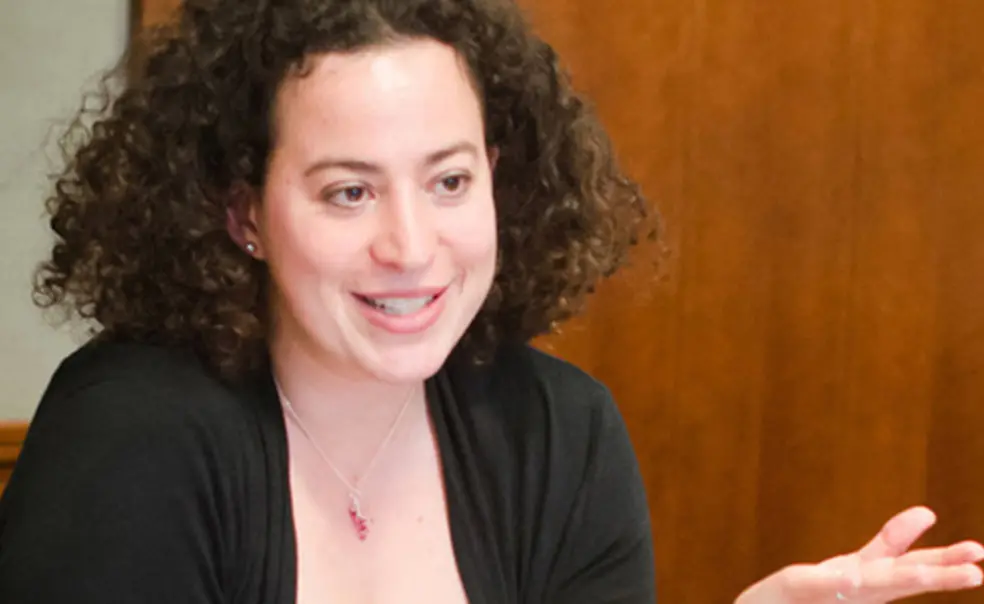Tiger Ethics: Helping Family and Evaluating Risk During COVID
How do we balance the risks to individuals and society?
Policymakers, health-care providers, and ordinary citizens are grappling with ethical challenges presented by COVID-19. What are our obligations to others? How do we balance the risks to individuals and society? What’s an ethical response to the virus’s unequal impact on different communities? Laurance S. Rockefeller Professor of Philosophy and Human Values Elizabeth Harman has agreed to answer readers’ questions on pandemic ethics — send yours to Tiger Ethics at paw@princeton.edu or PAW, 194 Nassau St., Suite 38, Princeton, NJ, 08542. We’ll post selected questions and responses.
Editor’s note: The questions here came from PAW and Harman.
I take my elderly mother out to dinner once a week — a bright spot in her routine. When I told her we could no longer see each other because of the virus, she said, “What do I care? I’m 92!” What is society’s responsibility to vulnerable people who most value experiences with family near the end of life?
Many people share your struggle. They want to lay down rules for their parents to protect them, but their parents want to “disobey.” Some of the hard questions were settled by widespread governmental guidance to stay home, but as restaurants start opening back up, we have to face tough decisions.
Your question raises two distinct issues, one about your mother, and one about you. First, should your mother’s preference be taken seriously? If your mother is under the sway of misleading news sources that minimize the threat of COVID-19, then her attitude may come from failing to really understand what the risk is. But suppose she does understand the risk, she is of sound mind, and she is simply willing to take that risk. In that case, her choice should be taken seriously. Her choice is understandable and reasonable — to keep having the experiences that are meaningful to her, even if they are dangerous.
But the second factor is you — what are you willing to do? Even if you agree that your mother’s choice matters, there is still the further question of whether you are comfortable taking her to a restaurant. You may be unwilling to risk passing the virus on to others at the restaurant, in case you or your mother were unknowingly infected. You may not want to play a role in exposing your mother to the risk of catching the virus, or you may not want to be exposed yourself. It’s OK for you to be guided by your own reluctance.
Many doctors and nurses have been asked to treat COVID-19 patients without adequate personal protective equipment (PPE). What are the duties of medical professionals when doing their jobs would put their health and their lives at risk?
The pandemic has presented us with an emergency situation. We all know that doctors and nurses are entitled to adequate PPE, but that hasn’t always been available throughout the pandemic. Do they have a duty to treat patients without proper PPE? The short answer is: No. Medical professionals are allowed to decide that a situation they did not sign up for and did not anticipate is simply too unsafe for them. They are allowed to walk away.
But knowing that they have the right to walk away doesn’t settle the hard moral question. Doctors and nurses without adequate PPE still need to ask themselves: What should I do? This is not a question about duty, because we’ve already said they don’t have a duty to treat.
But there are still moral reasons to stay and treat patients. As our society faces this pandemic, we need doctors and nurses. Patients need to be treated. Only some people have the skills to help. Thus, on the one hand, doctors and nurses face special reasons to keep working. On the other hand, doctors and nurses have been put into an unfair situation: The lack of PPE was preventable and was a foreseeable effect of the federal government’s inadequate pandemic preparedness, as well as our hospital system’s being geared to maximize efficiency rather than to ensure readiness for unlikely but serious crises like this.
Doctors and nurses have every right to be angry at the situation we’ve left them in. Yet, as each has asked “What should I do?” most have decided to keep working, trying to save as many lives as possible. It is plausible that they are right that they should help, even though no duty requires them to help. Sometimes the choice that is above and beyond the call of duty is the choice one should make.












No responses yet